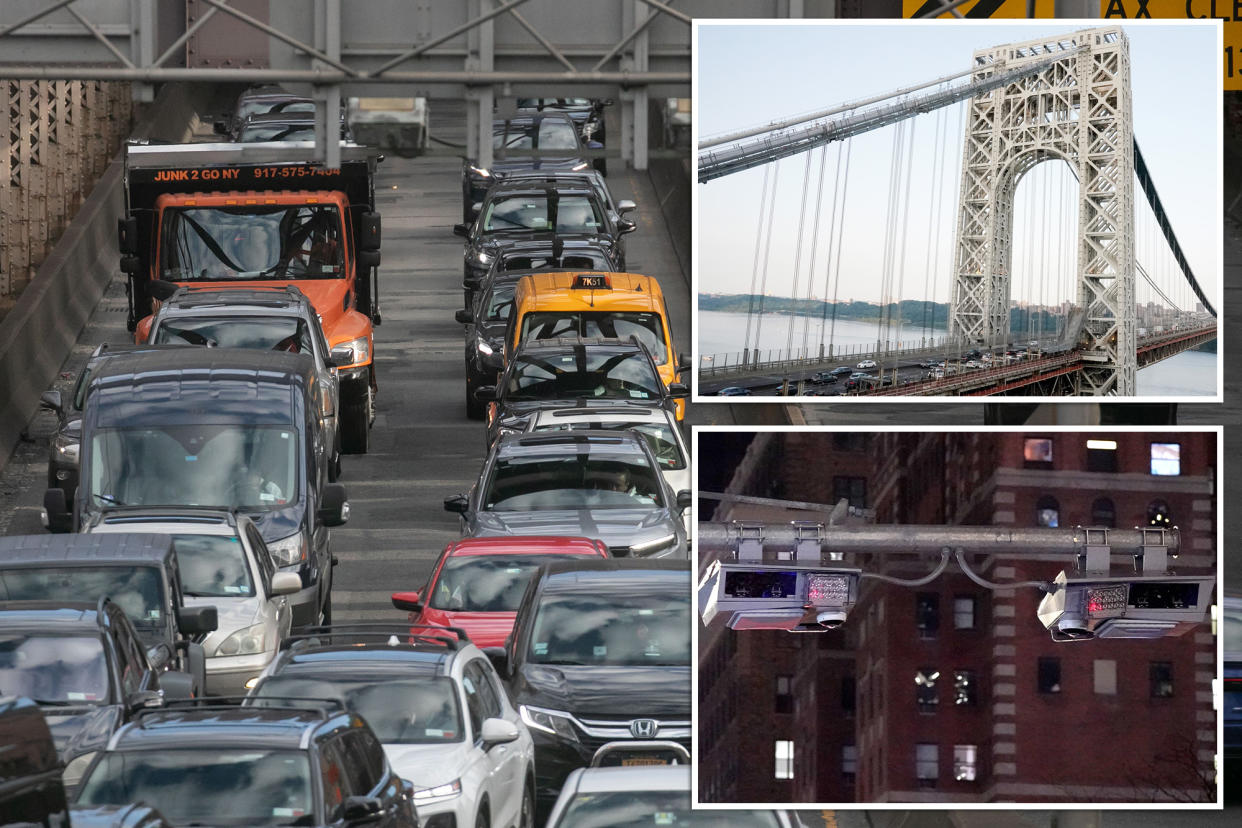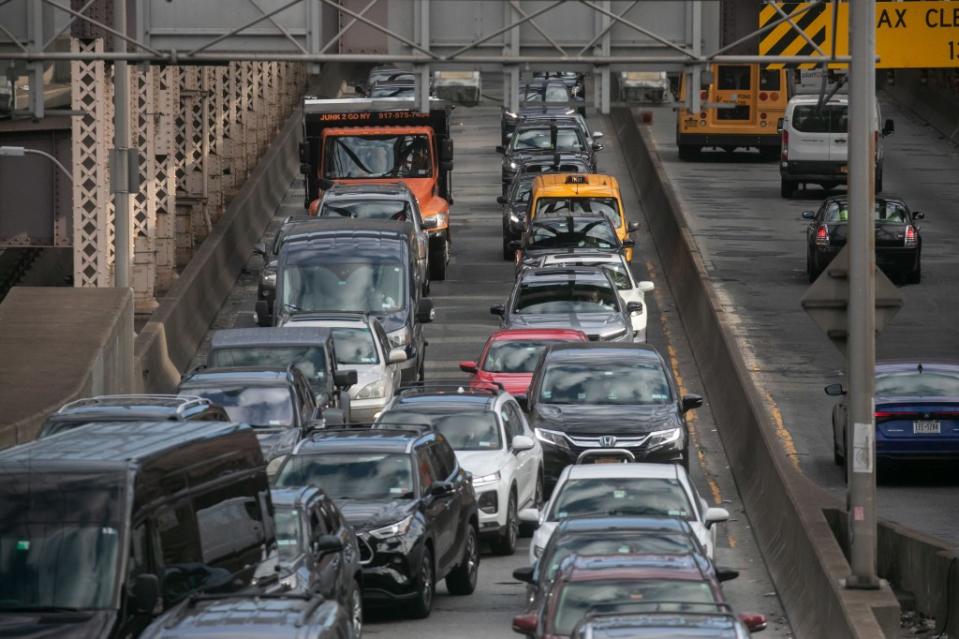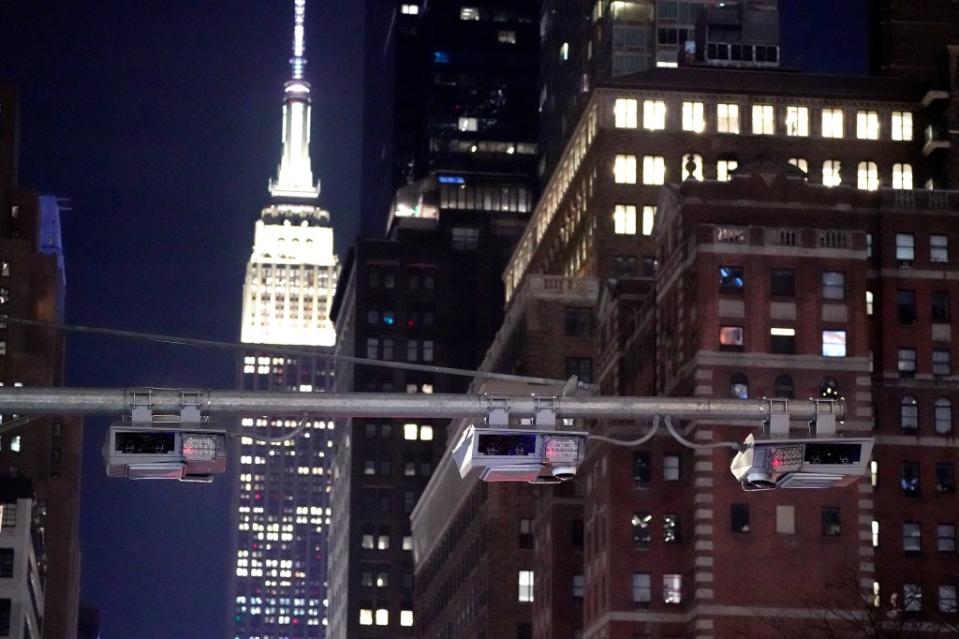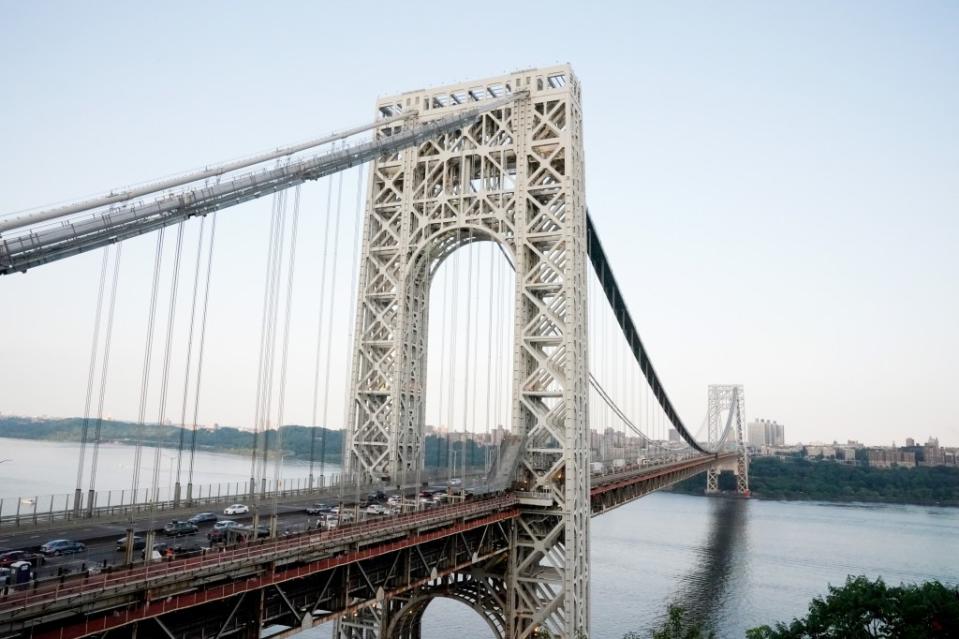MTA to exempt much of NYC fleet, private bus lines, Hampton Jitney from $15 congestion toll

The MTA will exempt a major portion of the Big Apple’s municipal car fleet — and most private bus operators such as the Hampton Jitney — from its new $15 daily congestion toll, agency officials said Monday.
Specialized city vehicles such as fire trucks and snow plows were already excluded under the controversial plan, but Metropolitan Transportation Authority officials said the group would now be expanded to include city-owned cars assigned to the new tolling district, which covers the local streets and avenues in Manhattan south of 60th Street.
As for buses, they were previously exempt only if they were owned by transit agencies such as the MTA or New Jersey Transit or contracted by a government agency to provide service.

Now private operators who run a regularly scheduled service with tickets won’t have to pay the hefty toll, either.
The MTA plans to include the changes in its final tolling proposal set to be presented to its board Wednesday, officials said.
“We look forward to continuing to work with them,” Patrick Condren, who lobbies for the private bus lines, said of the agency. “We are providing public service to the riding public, and we’re pleased and happy to see that the MTA recognizes that.
“A bus is clearly congestion mitigation,” Condren added, referring to one of the toll’s goals — to reduce traffic in Midtown while also cutting pollution and raising money for public-transit improvements.
The other major components of the tolling proposal are expected to remain largely the same, with transit agency officials spinning the tweaks as “clarifications” instead of concessions.
“The MTA will bring congestion pricing toll rates to a vote this week, tied closely to the Traffic Mobility Review Board recommendations, with certain clarifications that include items raised by the City of New York and others,” said an agency executive, Juliette Michaelson, in a statement.

The MTA hopes to begin charging the toll in June. Still, the program is currently tied up in court over charges from opponents that the federal government did not require an exhaustive enough review of how the toll might drive traffic to other parts of the city and add to pollution there.
Arguments in the lawsuits brought by New Jersey Gov. Phil Murphy and other Garden State politicians are scheduled to get under way in Newark on April 3.
The congestion-pricing plan would charge drivers $15 per day if they exit the West Side Highway or the FDR Drive in Manhattan and enter its local streets south of 60th Street between 5 a.m. and 9 p.m. on weekdays and 9 a.m. and 9 p.m. on weekends.

Drivers coming in during the peak times through the separately tolled Hudson or East River tunnels would receive a $5 discount on the congestion charge, cutting their second toll to $10.
The off-peak congestion toll would be discounted to $3.75 per day.
Trucks would be charged either $24 or $36 per day to enter the zone during peak times based on their size. They would get a steep discount to just $6 and $9, respectively, during the off-peak to try and move deliveries to businesses and buildings out of the rush-hour when the streets are jammed.
Additionally, residents who live in the tolling zone and make less than $60,000 annually would be able to write the tolls off against their state taxes, while those who make less than $50,000 or receive welfare benefits would qualify for a $7.50 peak toll discount after their 10th toll.

